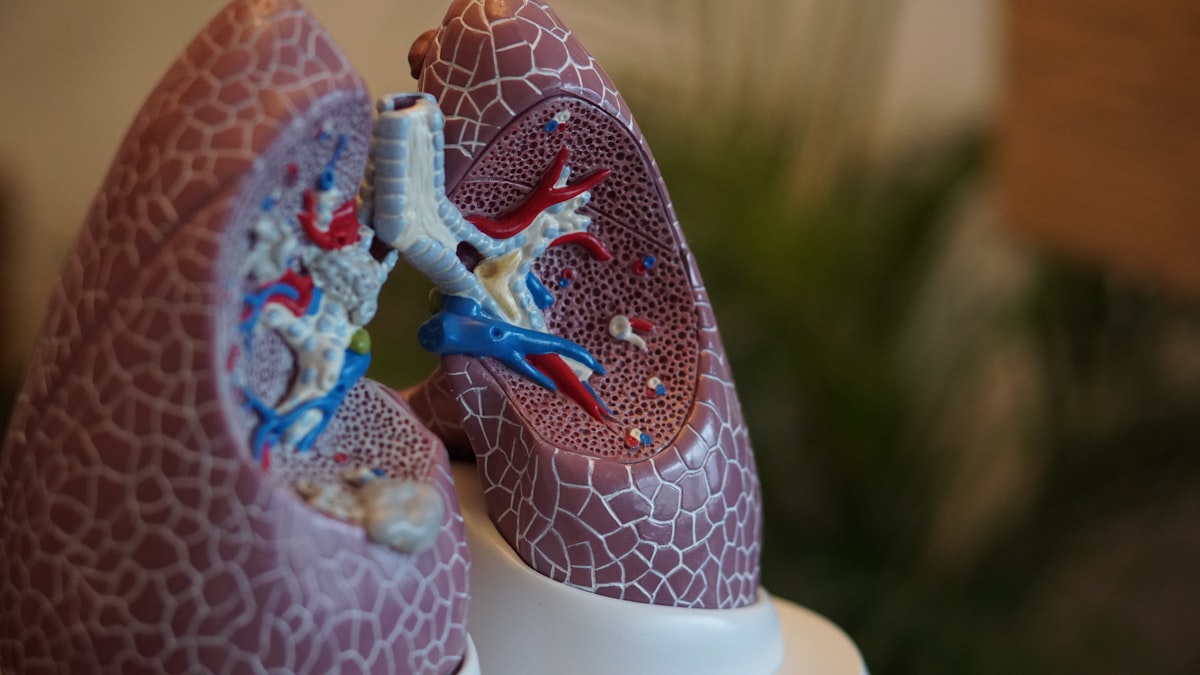Does Singing Help Your Lungs? Explaining the Science

Singing and breathing are so closely related that it has to have some affect on your lungs. Given that singing is such an enjoyable activity, many hope that it is inadvertently improving their lung health at the same time. In this article, I have explored relevant literature to answer this very question.
Studies show that singing improves lung health, classifying it as aerobic exercise. The breathing techniques used when you sing mimic those used by physiotherapists for lung health, improving lung capacity, increasing breath control, reducing breathlessness and clearing the airways of mucous.
I have explained how singing can improve these aspects of your lung health below, as well as a few other benefits that you may not have known about. You can also find a summary of what happens to your lungs in the background when you sing.
Does Singing Help Your Lungs?
Lewis et. al. published a systematic review in 2016 (link here), which analysed the results of many studies answering this question. These studies assessed the affect of singing on the physical and mental health of patients with lung disorders such as COPD (chronic obstructive pulmonary disease), asthma, bronchiectasis, obstructive sleep apnoea and interstitial lung disease.
Although the studies were all small, the review supported the concept that singing does improve your lung health. In particular, patients scored on the physical component of their SF-36 ('short form 36). This is a popular measure of the physical health of the lungs.
Singing is actually classified as an aerobic exercise because it is widely known that singing introduces more oxygen into your blood. These studies have helped us understand why this occurs and exactly how singing may be improving your lungs. This is why, as I mentioned earlier, the breathing techniques required to sing are very similar to those adopted by physiotherapists when treating patients with lung disease.
Singing Improves Breath Control
Singing teaches people to control their breathing so that they can adjust the volume of their voice, the type of sound produced (breathy vs powerful/clear), and the duration of a sound or phrase.
The techniques used when singing specifically engage the diaphragm so that it moves smoothly and more powerfully. A powerful or strengthened diaphragm can push abdominal organs down further to make more room in the lungs (increasing lung capacity). It can also relax slowly and smoothly, controlling how fast air flows out of the lungs.
Although the diaphragm is the major muscle involved in breath control, other muscles, such as the intercostal muscles (small muscles that contract the ribcage), are also strengthened when singing. Toning these muscles also improves a person's breath control.
Controlling your breathing allows you to take more effective breaths. Your body gets used to taking deeper and longer breaths, using more of the diaphragm than the chest. You then start to subconsciously adopt this effective breathing technique in everyday life.
This can also help those that suffer with breathlessness because the body is receiving more oxygen with each breath.
Singing Improves Your Posture
Correct singing posture is something that every singing student is taught early on in their training. Correct posture reduces compression of your airways and chest by straightening your body as much as possible. This then encourages deeper breaths and allows air to flow more freely through the lungs and airways.
By practicing correct singing posture, people start to find their natural posture shift. Over time, you will find yourself standing in a way that makes breathing much easier and more effective.
Singing Clears the Airways
More airflow will loosen any mucous lining the walls of the lungs and airways. This mucous is then moved through the airways until it can be removed with a cough or clearing of the throat.
Singing encourages deeper breaths in and longer breaths out. This action introduces more airflow into the lungs and helps to clear this mucous.
You might have noticed this yourself. If you have sputum or mucous in your lungs or throat, it usually stays where it is as you breathe quietly. However, when you go to talk or sing, that same mucous comes crackling up, forcing you to then cough or clear your throat.
Once the mucous is clear, it no longer lines the walls of your lungs, which is where oxygen and carbon dioxide are exchanged in your bloodstream.
Singing Increases Lung Capacity
As I mentioned earlier, singing strengthens your diaphragm so that your abdominal organs can be pushed down further. This give the lungs more room to expand, increasing your lung capacity.
Regular deep breathing will also stretch the muscles between the ribs (intercostal muscles), allowing your ribs to seperate further and expand the ribcage. This gives the lungs even more room to expand.
If you have mucous in your lungs, this will take up some space inside your lungs. As I mentioned earlier, singing can help clear this mucous, allowing more air to be taken in.
Singing Increases Oxygen Saturation
Increased lung capacity, deeper controlled breathing and clear airways all improve the exchange of oxygen into your bloodstream. Not only does more oxygen enter the lungs, but it has more contact with the walls of your lungs (more oxygen is exchanged).
With more oxygen crossing through the walls of the lungs, more oxygen will be absorbed into your blood, which then makes the overall amount of oxygen in your blood ('oxygen saturation level') higher.
Oxygen is, as you probably know, very important in keeping cells in your body healthy. This includes the cells that make up your lungs and airways!
Singing Improves Sense of Wellbeing and Mood
There are actually many benefits to singing, which you can read about in this article. One of these is that it improves you mood and sense of wellbeing.
As far as your body is concerned, this feeling creates a positive association when you use correct breathing techniques. A big benefit of this is that you are more likely to do it again.
For those trying to improve their lung health, exercises from the physiotherapist can feel repetitive and boring. But if you are using these same techniques when you sing, you enjoy the activity and feel a sense of accomplishment when singing a song.
Therefore, you not only feel healthier and happier, but you are also more likely to practice good breathing techniques and improve your lung health subconsciously.
